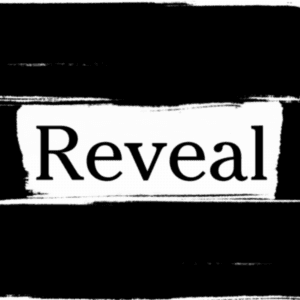Reveal
The Center for Investigative Reporting and PRXReveal’s investigations will inspire, infuriate and inform you. Host Al Letson and an award-winning team of reporters deliver gripping stories about caregivers, advocates for the unhoused, immigrant families, warehouse workers and formerly incarcerated people, fighting to hold the powerful accountable. The New Yorker described Reveal as “a knockout … a pleasure to listen to, even as we seethe.” A winner of multiple Peabody, duPont, Emmy and Murrow awards, Reveal is produced by the nation’s first investigative journalism nonprofit, The Center for Investigative Reporting, and PRX. From unearthing exploitative working conditions to exposing the nation’s racial disparities, there’s always more to the story. Learn more at revealnews.org/learn.
Reveal’s investigations will inspire, infuriate and inform you. Host Al Letson and an award-winning team of reporters deliver gripping stories about caregivers, advocates for the unhoused, immigrant families, warehouse workers and formerly incarcerated people, fighting to hold the powerful accountable. The New Yorker described Reveal as “a knockout … a pleasure to listen to, even as we seethe.” A winner of multiple Peabody, duPont, Emmy and Murrow awards, Reveal is produced by the nation’s first investigative journalism nonprofit, The Center for Investigative Reporting, and PRX. From unearthing exploitative working conditions to exposing the nation’s racial disparities, there’s always more to the story. Learn more at revealnews.org/learn.
It's Not Easy Going Green
When they were invented in the ’90s, renewable energy certificates were meant to stimulate the green energy market. Back then, building wind and solar farms was way more expensive than it is today. The idea was that renewable energy producers could sell certificates that represented the “greenness” of the energy they made. Anyone buying those certificates, or RECs, could claim that green power and also claim they were helping the environment.
For years, corporations have bought RECs as a low-commitment way to claim they’re “going green” – all while using the same old fossil fuel-powered electricity.
So how exactly do RECs help the climate crisis? This week, Reveal investigates RECs and finds that the federal government uses them to pad its environmental stats.
Reveal’s Will Evans starts with Auden Schendler, the man in charge of sustainability at Aspen Skiing Co. Schendler initially convinced his company to buy RECs to go green, then realized he made a mistake. But even after he spoke out and evidence piled up showing that RECs were ineffective, other companies kept buying them – and the federal government did, too. Evans and Reveal’s Melissa Lewis determined that since 2010, more than half of what the government has claimed as renewable energy was just cheap RECs.
Next, Reveal’s Najib Aminy takes us to Palm Beach County, Florida, to find out where some RECs are made: in a trash incinerator. Amid all the sounds and smells of burning garbage, Aminy looks into whether buying RECs actually helps the environment and where the money goes. He meets Andrew Byrd, who lives nearby and worries about the fumes. It turns out that federal agencies bought RECs from this incinerator in order to meet renewable energy mandates.
Finally, we explore another place where the government buys RECs: two biomass plants in Georgia, where residents complained of toxic pollution. Evans looks into where the government’s modest environmental goals come from and why federal agencies buy RECs in the first place. He also talks to a REC industry veteran and examines how a plan from the Biden administration could change things.
Support Reveal’s journalism at Revealnews.org/donatenow
Subscribe to our weekly newsletter to get the scoop on new episodes at Revealnews.org/newsletter
